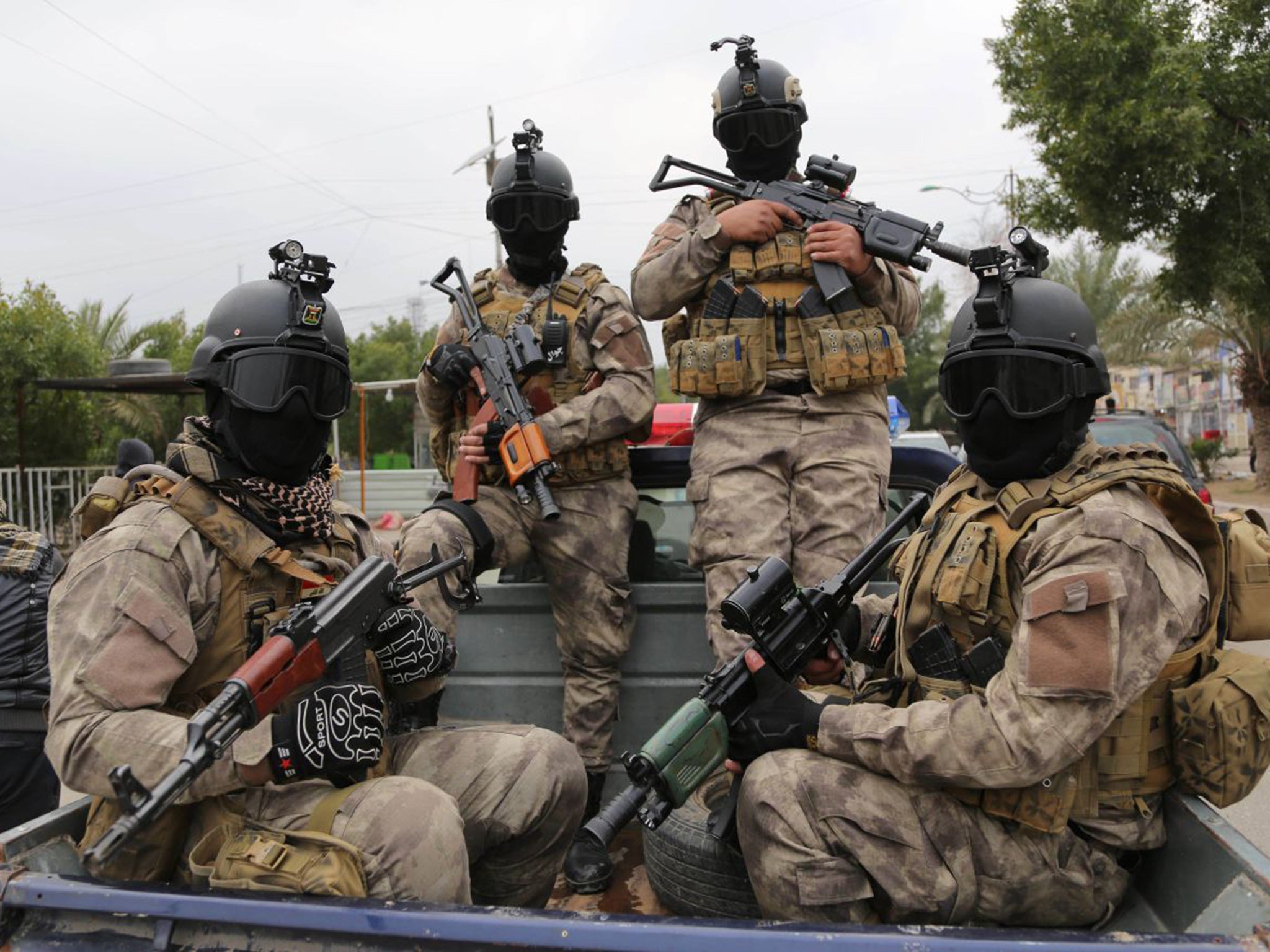Isis suicide bombers blow up dozens of shoppers in Baghdad market

Your support helps us to tell the story
From reproductive rights to climate change to Big Tech, The Independent is on the ground when the story is developing. Whether it's investigating the financials of Elon Musk's pro-Trump PAC or producing our latest documentary, 'The A Word', which shines a light on the American women fighting for reproductive rights, we know how important it is to parse out the facts from the messaging.
At such a critical moment in US history, we need reporters on the ground. Your donation allows us to keep sending journalists to speak to both sides of the story.
The Independent is trusted by Americans across the entire political spectrum. And unlike many other quality news outlets, we choose not to lock Americans out of our reporting and analysis with paywalls. We believe quality journalism should be available to everyone, paid for by those who can afford it.
Your support makes all the difference.Isis jihadists have killed at least 31 people in a suicide bomb attack in Baghdad.
The two bombs were detonated in a mobile phone market in Sadr City, a primarily Shia district in the suburbs of the Iraqi capital.
According to Iraqi police, the men arrived in the crowded market on motorcycles before detonating their suicide bombs.
Shi'ite areas of Baghdad have long been targeted by Isis, though the militant organisation is yet to claim responsibility for this attack.
Isis are known to have been active overnight in the outskirts of Baghdad in their largest assault on the city for months. Suicide bombers and gunmen attacked army and police posts, killing at least 12.
They seized positions in a grain silo and a cemetery, 12 miles (25km) from the centre of the city and adjacent to the international airport. At least four militants are believed to have died, with another 20 currently pinned down in the grain silo.
The Sadr City attack is the latest to claim the lives of Shia Muslims in Baghdad. On 25 February, a so-called "double-tap" bombing killed 15 people at a Shia mosque. One bomber blew himself up, before a second assailant detonated his vest as security forces rushed to the casualty scene.
In January, Isis launched a series of co-ordinated attacks in Shia areas across the Baghdad metropolitan area and beyond, as gunmen, suicide bombers and a car bomb killed over 50 people.
In a statement after the attacks in Shi'ite suburbs and a shopping centre, Isis said that it was deliberately targeting "rejectionists" (the derogatory term it uses to describe Shia Muslims), and added that "worse was to come".
In an Isis-claimed attack in Sadr City on 13 August 2015, a refrigeration truck packed with explosives was detonated in a food market, killing at least 76 and injuring over 200.
The impoverished district also suffered bombings in June 2009, November 2006 and July 2006, killing 69, 62 and 215 people respectively.
Home to around a million people, the district is named after deceased Shi'ite leader Mohammad Mohammad Sadeq al-Sadr. Prior to the deposition of then-President (and Sunni) Saddam Hussein in 2003, the area was known as "Saddam City".
Join our commenting forum
Join thought-provoking conversations, follow other Independent readers and see their replies
Comments